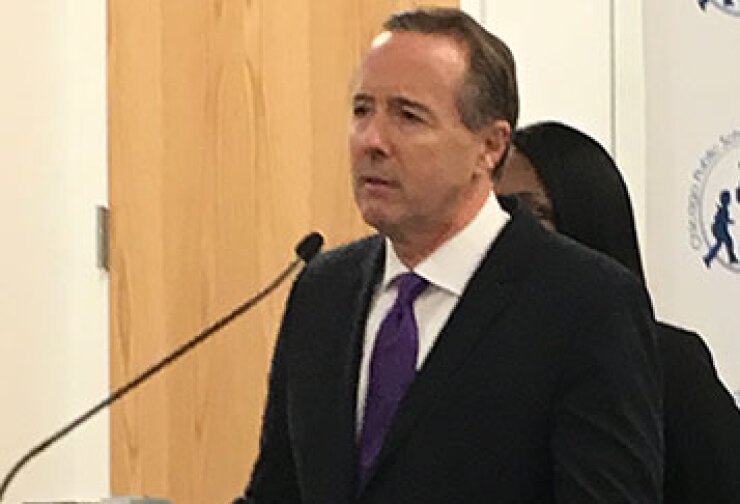
CHICAGO – Chicago Public Schools began the work of chipping away at a $215 million budget hole caused by Gov. Bruce Rauner's recent veto of funds to help cover a $720 million teachers' pension payment.
The district imposed four furlough days on employees in fiscal 2017, which runs through June 30. The savings are modest – $35 million – but represent an effort by the district to show it's dealing with the possible loss of the funds and to up the pressure on state leaders who could resurrect the funding.
"With a hole of this size in our budget, we have no choice but to begin to take immediate action to preserve CPS' solvency," said the district's chief executive officer, Forrest Claypool, who added that the cut comes "at the same time that the state is increasing its contributions for other districts' pensions by $300 million, to nearly $4 billion."
The furlough days will take place on days that students are off for "school improvement days" for staff meetings, training, and academic review. Further cutting would likely impact the classroom, Claypool said.
The $215 million in pension help was part of a package for CPS that also provided $100 million in additional grant funds and cleared the path for a $250 million property tax levy hike for teacher pensions. It was approved as part of the state's stopgap budget signed by Rauner in June but the $215 million was linked to the future passage of state pension reforms.
During the November veto session, Rauner was angered by a comment from Senate President John Cullerton, D-Chicago, over the linkage and vetoed the legislation. The House lacks the votes for an override.
The Senate's bipartisan "Grand Bargain" legislative package would resurrect the aid. The bills will receive a hearing the week of Jan. 24 and leaders want a vote by early next month but their fate in the House is uncertain because House Speaker Michael Madigan, D-Chicago, has previously been opposed to some of the proposals.
CPS has struggled to remain afloat over the last two years, draining reserves to deal with rising pension costs and relying heavily on costly short-term borrowing.
Moody's Investors Service in a special report published Thursday on CPS' finances warned that spending cuts won't solve the district's distress.
"The district has significantly cut expenditures to mitigate deterioration of its financial position," Moody's wrote.
Headcount reductions will yield $232 million in savings in fiscal 2017 but class sizes are on the rise up to 25 last year from 24 students in 2015 and above the statewide average of 21 students. The district has also trimmed staff at its headquarters and administrative budgets.
"More extreme reductions would be needed to bring about material improvement in the district's finances," according to Moody's.
The district has limited fiscal flexibility as a non-home rule unit of government that faces property tax caps and it's already won city council support to impose a $45 million capital tax and state approval for the $250 million pension levy.
Moody's laid out the "painful" options the district could pursue.
It could seek a change in state law to skip or reduce its pension payment but that would only add to its $19 billion of net pension liabilities. It could pursue a Chapter 9 filing if the state added such a statute as Rauner has proposed, but CPS and Mayor Rahm Emanuel are strongly opposed to such a move.
Moody's views as the most likely scenario CPS triggering an ad valorem tax levy pledged to bond repayment to free up state aid for operations. CPS abates the tax levy that doesn't fall under state caps and uses an alternate source like state aid. Forgoing the abatement would free up about $400 million in revenue for district operations.
The city has long opposed triggering the levy. Moody's also warned of drawbacks because it would increase the burden on the tax levy and investors might perceive future borrowings as less secure.
The district's general obligation bonds are rated junk by Moody's, Fitch Ratings and S&P Global Ratings while Kroll Bond Rating Agency assigns a low investment grade.





